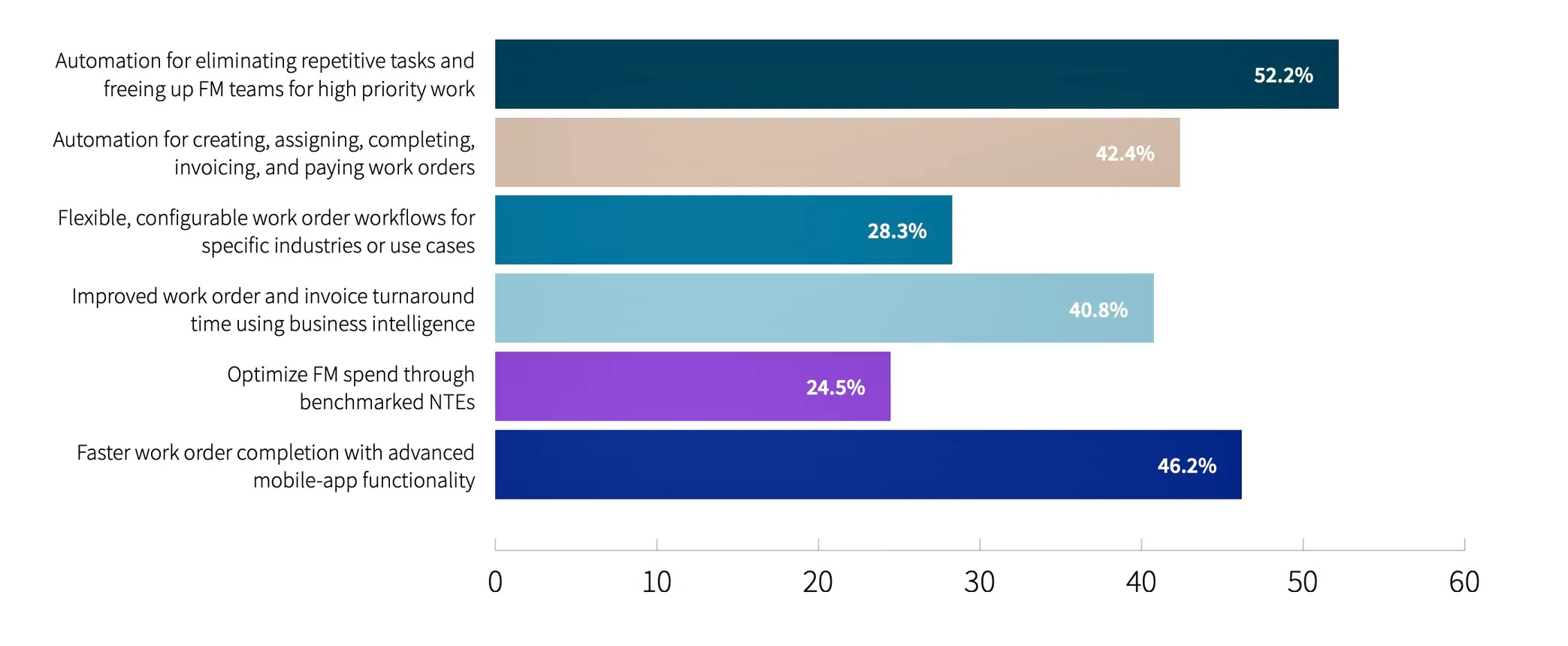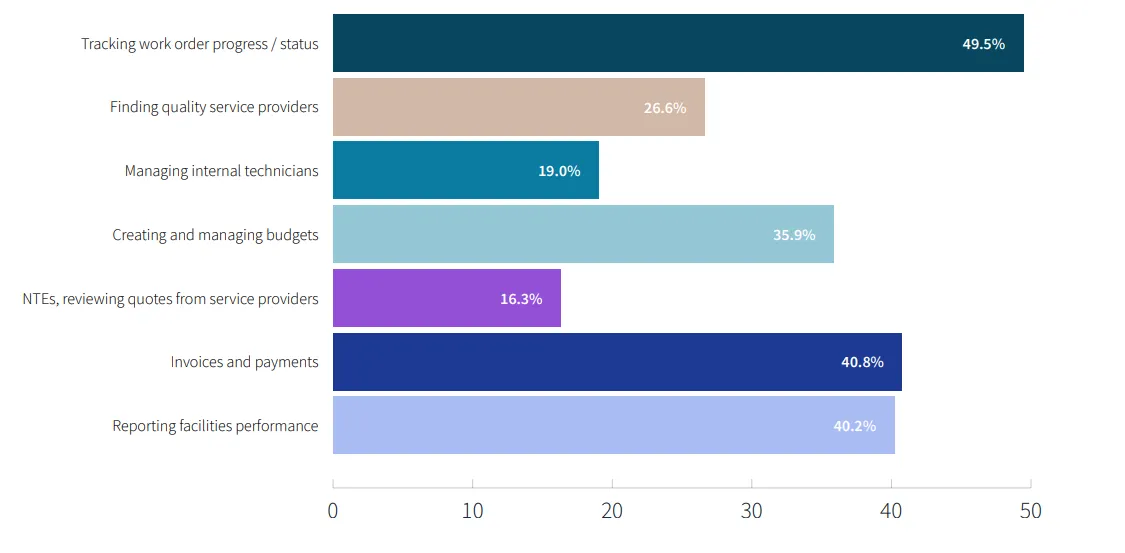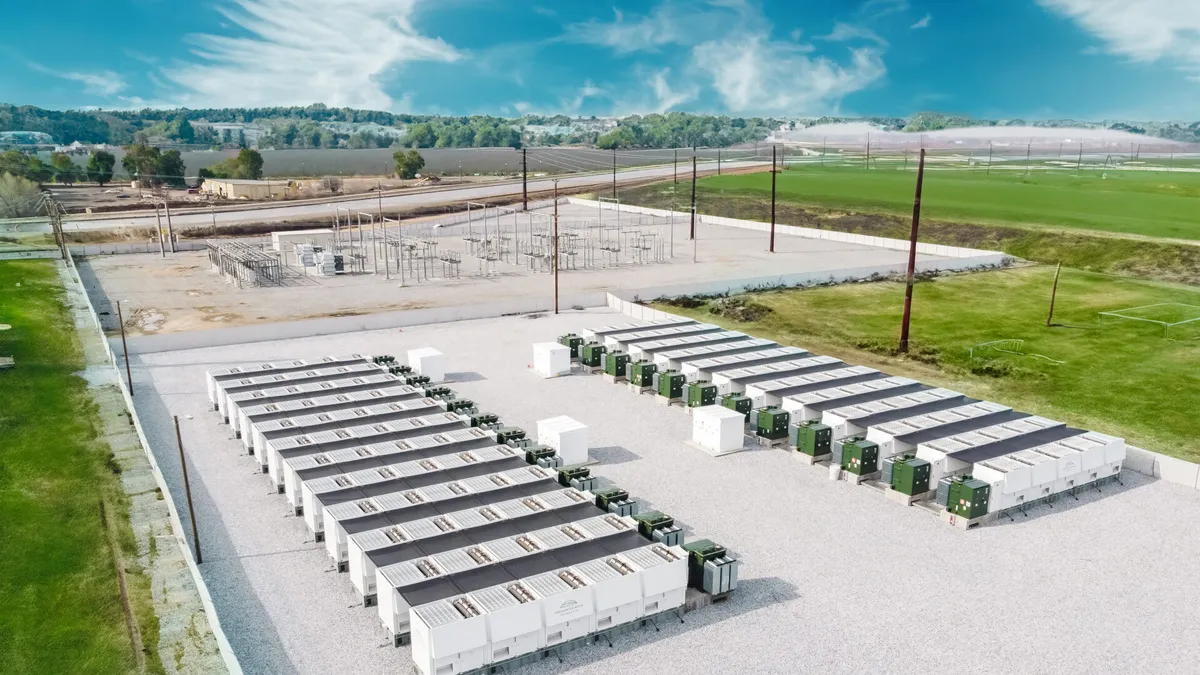Beleaguered by hiring freezes, aging employees and budget constraints that prevent new staffing, facilities management teams are concerned about their ability to meet the demands of growing work order volumes, according to JLL Technologies’ 2023 State of Facilities Management report.
In a survey that polled facilities management practitioners across North America, 65.8% of respondents stated that managing work orders is their highest priority this year, and 61.6% cited an expectation of an increase in work orders through 2023, compared to those in 2022.
“Shorthanded facilities management teams will be the norm in the years ahead,” JLLT said in the report. It also noted that business intelligence that enables data-driven decisions for equipment repair, replacements and internal facilities management operations “yields insights for capturing efficiencies and streamlining FM workflows” and “identifies cost savings in service provider networks.”
Against that backdrop, software and process automation is no longer a nice-to-have accessory for facility managers. Instead, it is now viewed as a crucial part of capturing gains in efficiencies to compensate for understaffed facilities management teams, and for managing work orders at scale by taking on manual and repetitive tasks like invoices, payments and warranty flagging.
Fifty-two percent of respondents surveyed through the spring of 2023 stated that automating tasks is the first outcome they expect from work orders, with 42.4% looking to automation for help with creating, assigning, invoicing and processing work order payments.
Almost 25% hoped to optimize facilities management spend through benchmarked not-to-exceeds. Other key priorities that the survey found include managing service providers (41.4%), managing asset life cycles (40.3%), reducing energy costs (35.9%) and leveraging business intelligence for decision-making (33.7%).

The survey also found significant demand for faster work order completion with advanced mobile-app functionality, with 46.2% of respondents alluding to the importance of mobile usage in managing increasing work order volume and on-the-go facility professionals.
Additional outcomes that facility managers expect from work order management solutions include improving work order and invoice turnaround using business intelligence (40.8%), and flexible, configurable work order workflows for specific industries or use cases (28.3%).

Forty-nine percent of facilities management professionals surveyed said that automation would help them track work order progress, particularly invoices and payments, more effectively.
Since the business value of facilities managers hinges closely on cost management, the report said, “leadership needs internal performance metrics like total work order volume and related costs, for evaluating FM effectiveness. Performance metrics for FM reporting can be automated and integrated with financial reporting in the larger organization.”














